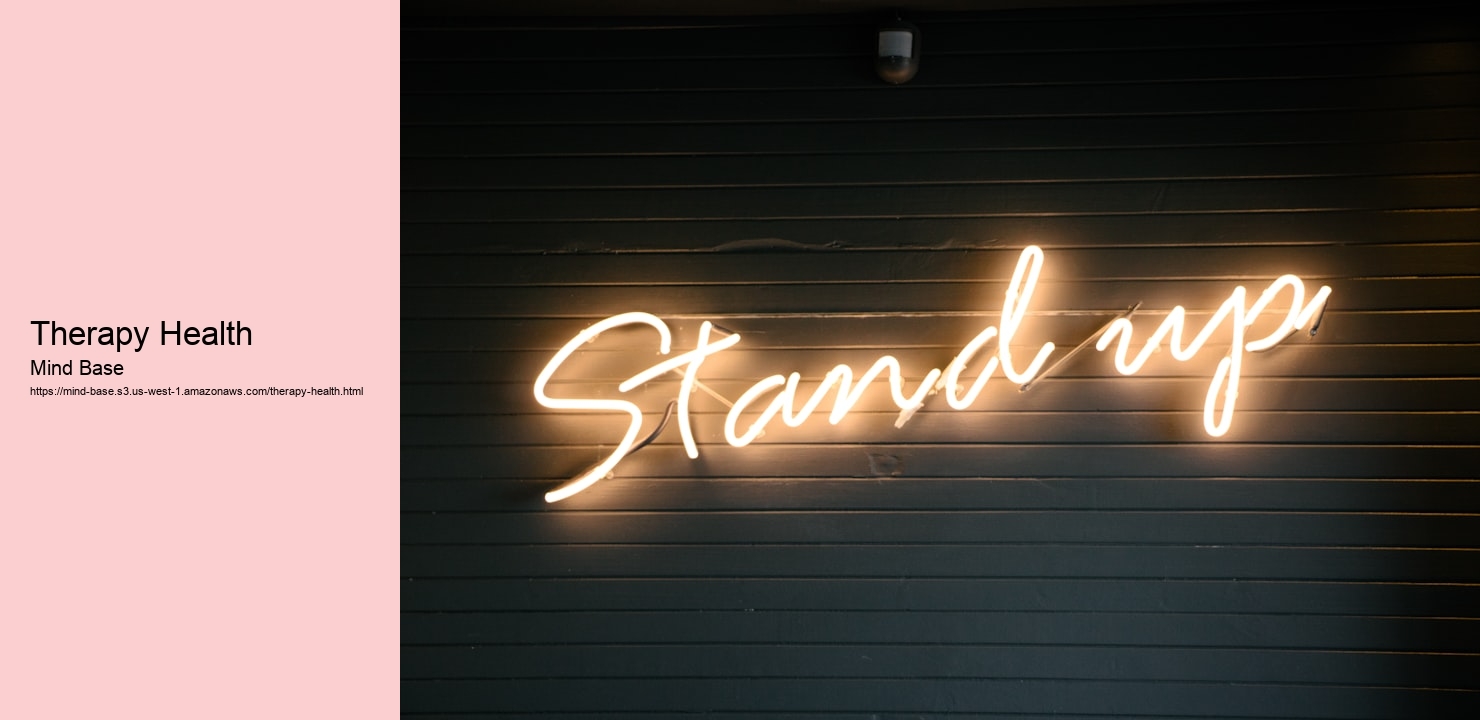
In Calgary's diverse community, mental health therapy begins with understanding the uniqueness of each individual. Therapists prioritize creating a safe and welcoming environment where clients feel heard and respected.
| Entity | Description | Source |
|---|---|---|
| Boundaries in Relationships | Setting limits to maintain healthy interpersonal dynamics. | source |
| Time Management for Mental Health | Organizing time to reduce stress and enhance well-being. | source |
| Coping with Trauma | Strategies to heal and manage the effects of traumatic experiences. | source |
| Resilience Building | Developing the ability to recover from adversity. | source |
| Positive Psychology Techniques | Approaches to enhance happiness and strengths. | source |
| Stress Inoculation Therapy | A method to prepare individuals for stress through gradual exposure. | source |
| Biofeedback Therapy | Uses technology to teach control over bodily functions like heart rate. | source |
| Sleep Hygiene Techniques | Habits to improve sleep quality and duration. | source |
| Digital Detoxing | Reducing screen time to improve mental clarity. | source |
| Virtuous Circle Counselling | A Calgary-based clinic offering innovative therapy approaches. | source |
A crucial element in effective therapy is building a trusting relationship between the therapist and client. In Calgary, therapists are trained to foster an atmosphere of trust by being empathetic listeners who provide non-judgmental support. This connection is vital for clients to open up about their struggles and engage fully in the therapeutic process.

Empowerment plays a significant role in mental health principles. Therapists in Calgary focus on helping clients recognize their strengths and resources, encouraging them to take an active role in their own healing journey. By empowering clients, therapists help them build resilience and confidence to face life's challenges.
Therapists often employ holistic approaches that consider all aspects of a client's life-emotional, physical, social, and spiritual well-being. In Calgary's vibrant therapeutic community, professionals integrate various methodologies such as cognitive-behavioral therapy (CBT), mindfulness practices, or art therapy to address diverse needs comprehensively.
Maintaining confidentiality is paramount in any therapeutic setting. Calgary therapists adhere strictly to ethical guidelines ensuring that all client information remains private. This commitment helps create a secure environment where clients can freely explore sensitive topics without fear of exposure or judgment.
Calgary's multicultural landscape requires therapists to be culturally sensitive and aware. Mental health professionals are trained to understand cultural nuances and respect differences in beliefs and practices.


As a round up: Effective mental health principles are built on understanding individuality, fostering trustful relationships, empowering clients through holistic approaches while maintaining confidentiality-all within culturally sensitive frameworks. For those seeking support from therapists in Calgary, these guiding principles ensure compassionate care tailored specifically for diverse communities.
In Calgary's diverse landscape, effective therapy begins with a deep understanding of each individual's unique context. Therapists focus on personal histories, cultural backgrounds, and specific mental health challenges to tailor their approaches. This personalized strategy ensures that clients receive care that resonates with their own life experiences, paving the way for meaningful progress.
Cognitive Behavioral Therapy (CBT) is a cornerstone in psychological strategies employed by Calgary therapists. By helping clients identify and challenge distorted thinking patterns, CBT aims to reshape negative behaviors and emotions. This method empowers individuals to take control of their mental processes, fostering healthier responses to life's stressors and enhancing overall well-being.

Mindfulness practices are increasingly integrated into therapeutic settings across Calgary. These approaches emphasize present-moment awareness and acceptance without judgment. By cultivating mindfulness, clients learn to manage anxiety and stress more effectively, leading to improved emotional regulation and greater resilience in facing daily challenges.
Therapists in Calgary often adopt an integrative approach, combining elements from various therapeutic modalities to suit individual needs. This flexibility allows practitioners to draw from techniques such as dialectical behavior therapy (DBT), humanistic therapy, or psychoanalytic methods when appropriate. Attention-Deficit Hyperactivity Disorder (ADHD) The goal is a holistic treatment plan that addresses multiple facets of mental health.

Mental wellness encompasses emotional, psychological, and social well-being, influencing cognition, perception, and actions. According to the World Health And Wellness Organization (WHO), it is a "state of well-being in which the specific understands his or her capabilities, can manage the regular stresses of life, can function productively and fruitfully, and can contribute to his or her neighborhood". It likewise determines just how a specific deals with stress, social relationships, and decision-making. Psychological health includes subjective well-being, viewed self-efficacy, autonomy, capability, intergenerational dependence, and self-actualization of one's intellectual and emotional capacity, to name a few. From the perspectives of positive psychology or holism, psychological health and wellness might include a person's capability to take pleasure in life and to produce an equilibrium between life tasks and initiatives to attain emotional resilience. Cultural distinctions, individual ideology, subjective assessments, and competing expert concepts all impact how one specifies "psychological health and wellness". Some very early indicators associated with psychological health and wellness problems are sleep irritability, absence of energy, lack of hunger, thinking of harming oneself or others, self-isolating (though introversion and isolation aren't necessarily harmful), and regularly zoning out.
.Psychotherapy (likewise emotional therapy, talk treatment, or speaking therapy) is the use of emotional techniques, specifically when based on regular individual communication, to aid a person modification actions, increase happiness, and overcome problems. Psychotherapy aims to improve an individual's health and psychological wellness, to resolve or alleviate problematic actions, ideas, obsessions, thoughts, or emotions, and to boost connections and social abilities. Various sorts of psychiatric therapy have actually been created either for private grownups, households, or youngsters and teenagers. Some types of psychotherapy are thought about evidence-based for treating diagnosed mental illness; other kinds have actually been slammed as pseudoscience. There are thousands of psychiatric therapy methods, some being small variations; others are based upon really various perceptions of psychology. Most approaches include one-to-one sessions, in between the client and specialist, however some are performed with groups, including pairs and family members. Psychotherapists might be mental health professionals such as psychiatrists, psychologists, mental health registered nurses, professional social employees, marriage and family members specialists, or specialist therapists. Therapists may additionally originate from a variety of various other histories, and depending upon the territory may be legitimately managed, voluntarily managed or unregulated (and the term itself might be safeguarded or not).
.ADHD testing in Calgary provides detailed assessments to diagnose attention issues in children accurately. Psychologists then create tailored therapy plans to improve focus and school performance.
Therapy for workplace stress in Calgary uses CBT to address job-related tension and burnout effectively. Psychologists help clients develop resilience and balance in a busy city environment.
A licensed CBT therapist in Calgary uses cognitive techniques to reduce anxiety effectively. They tailor sessions to address specific triggers, offering practical coping strategies.